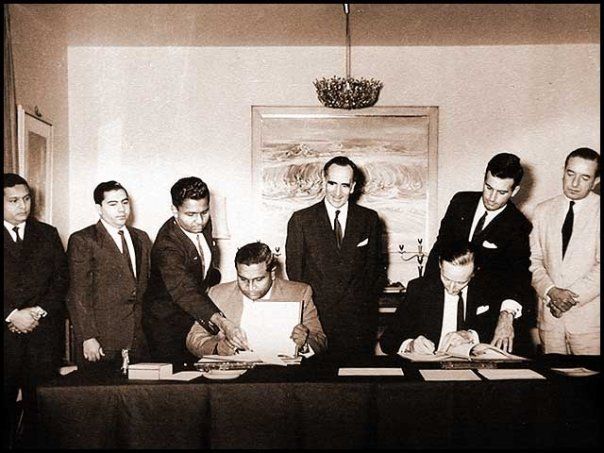Timeline – Story of Independence

26 Jul 2015, 09:00
The Maldives gained independence from the British on July 26, 1965, after 77 years as a British protectorate. The Maldives hosted a British air base on the island of Gan in Addu atoll between 1957 and 1967. The following is a timeline of important events in the story of independence with commentary from historian Mohamed Shathir.
For Shathir, two key events in the early 1960s heralded the Maldives’ independence from the British on July 26, 1965: the expulsion of the Borah traders from Malé and the suppression of a revolt in the southern atolls.
For Shathir, two key events in the early 1960s heralded the Maldives’ independence from the British on July 26, 1965: the expulsion of the Borah traders from Malé and the suppression of a revolt in the southern atolls.
Reclaiming control over the economy after 105 years and reunifying the country showed the Maldives had “the courage to secure full independence,” Shathir told the Maldives Independent.
“National spirit and unity was very strong then. It’s notable that everyone was united and came together,” he observed. “So that makes it easier for rulers. If there were big divisions over it in the country, it couldn’t have been done.”
Antiquity to mid-1880s – Historical records show that the Maldives was first settled about 2,500 years ago.
Become a member
Get full access to our archive and personalise your experience.
Already a member?
Discussion
No comments yet. Be the first to share your thoughts!
No comments yet. Be the first to join the conversation!
Join the Conversation
Sign in to share your thoughts under an alias and take part in the discussion. Independent journalism thrives on open, respectful debate — your voice matters.

